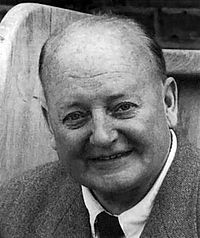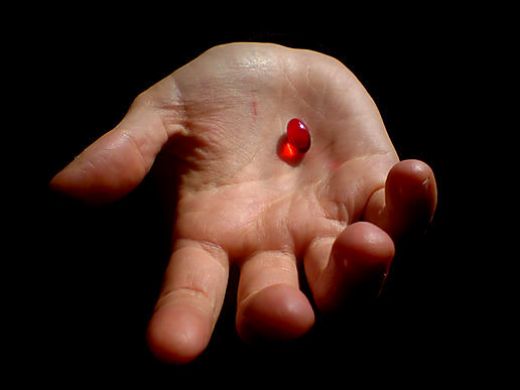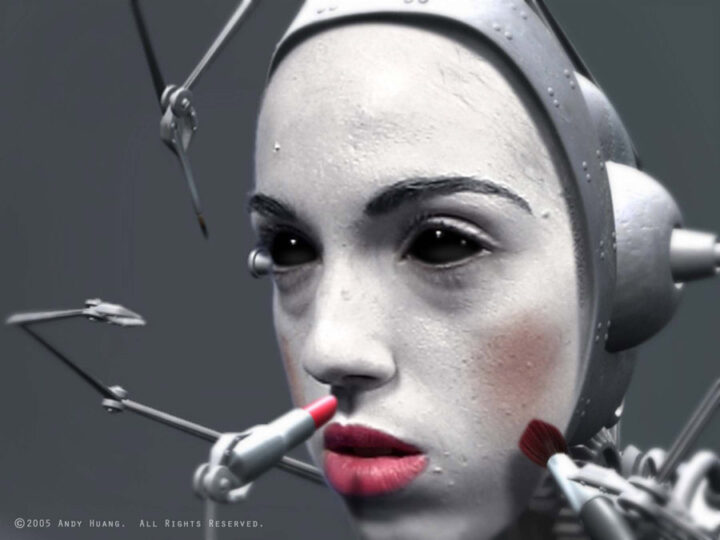
How To Travel Back Home
We shall not cease from exploration
And the end of all our exploring
Will be to arrive where we started
And know the place for the first time.
—T.S. Eliot
On a recent walk to my writing lair, I passed this bus kiosk, taken up lately with an ad for the touristic pleasures of Mexico. Now I love crumbly old pyramids arrayed beneath a clear blue sky as much as the next gringo, but what struck me was the tag line for this exotic image of Palenque:
Escape to a Real Life Paradise
Now if you are just hustling along, this makes as much sense as anything. But when you think about it, the tag splices and scrambles a number of different desires that, even more than they motivate our desire to travel, fill our ordinary days with discontent. Let’s consider these terms.
Escape. Our ordinary lives are prisons, because they are routine or familiar or chained to the cold hard reality of getting and spending. Travel offers escape from this condition, a loosening of the chains. But if escape reflects on what we are fleeing, where, according to the ad, are we going?
A Real Life Paradise. This is the heart of the matter. On one level, “real life” is an adjective that modifies “paradise,” the idea being of course that, except for this magic corner of Mexico, we know that paradise is bullshit. Why? For one reason, the paradises we travel to are invariably disappointing to the imagination stirred by ads like this—disappointing because they are either too uncomfortably different from what we know, or not different enough. In both cases, paradise is disappointing because it is a little too real—too much like the miseries of the front page, or too much like the miseries of our homes.
Paradise is true in a deeper, atheistic sense as well, because at this late date we are too sophisticated to buy paradise in any sense. Paradise is by definition bullshit. So in order for anything to still resemble paradise, it has to first of all be real.
But there’s the rub. Isn’t that what defines the mundane ordinary lives we are trying to “escape”? Their cold hard reality? As prisoners of late capital, we know all too well what reality is: the life of dying animal scurrying for cash and security on a disenchanted globe. And yet, in order to truly escape, we must arrive at somewhere real. So there are two possibilities (and remember we are talking about the world our desires create): either there are two orders of reality—the reality of our mundane lives, and the reality of the real paradises that lie beyond them—or our cold hard ordinary lives are actually fake.
And here we stumble onto one of the sad absurdities about the modern or postmodern condition. On the one hand, the contemporary world, the world reshaped principally by the disenchanting operations of science and capitalism, is defined by its reality more than almost anything else. In contrast, the old world—the world of ensouled matter, of spiritual correspondences and angelic agents, that was inhabited without question by the medieval peasant or the Renaissance alchemist or the Arabic scholar—is an illusion. We may see its escapist potential, but if we are being true to modern sensibility, we reject it on ethical grounds. Though the world delivered to us by physics and Darwin and neuroscience may not be very pleasant, it has the virtue of being, at the very least, real.
And yet, I suspect, most of our lives do not feel real, neither our sufferings nor our ordinary pleasures. Why? If existentialist language had not been pulverized by postmodernity and the culture of ceaseless irony , we could see our lives do not feel real because they do not feel authentic. But authenticity is now part of that “old world” of ensouled matter, of meaning, that we are too realistic to tolerate. But even if we cannot feel our lives as inauthentic, we can certainly experience them, despite their cold hard reality, as artificial, manufactured, pervasively manipulated.
So if our deepest desire is truly to escape, then it does not work to escape into a fantasy world (“Escape into a fantastic paradise”) but into a real reality—that is, an authentic reality. This is what J.R.R. Tolkien meant when he defended the “escapism” of the fairy story: “Why should a man be scorned if, finding himself in prison, he tries to get out and go home? Or if, when he cannot do so, he thinks and talks about other topics than jailers and prison-walls? The world outside has not become less real because the prisoner cannot see it.”
But is this really what we want? I don’t know about you, but I do not share Tolkien’s almost Platonic faith in the goodness of the world outside the cave. In other words, like a lot of folks, I am pretty scared of real reality. If I could push a button and be delivered of all my illusions, I think I would run screaming for the hills, or at least to the nearest bar or movie-house or strip club. “Another pint of pixie dust please!”
So though our hearts want to escape our artificial prison into “real life,” we can’t really cotton to the cost of such withering authenticity. So we need to modify that real life of our desires with something fantastic—in other words, with “paradise,” the fulfillment of all desires, which also looks a lot like the heaven that ruled over that old enchanted world of ensouled matter—and which was, by the way, the heaven that Tolkien still believed in.
Can we wake up from the whole system, from this whole twisted loop?
One way to try would be to imagine the opposite injunction of this ad and then embrace it. The opposite to escape is easy: rather than flee our quotidian dissatisfaction, we accept and work with where we are. We give up the imaginative respite of the exotic, the glimmers of heaven. This sounds like a lot of contemporary American Buddhism.
The opposite of paradise is pretty clear as well. Here we abandon fantasies of other places where things are truly different, and accept that this un-paradise is the actual field of our lives, the only place of true potential and transformation. This sounds like progressive realism.
But there we go again. Realism. For if we go the distance with our opposite injunction, doesn’t that mean that we should embrace the opposite of “real life”? To truly accept our lives here, the lives we live as we pass such stupid ads on the way to work, could mean that we have to give up on the quest for reality itself, because our lives are so artificial and deluded that every “solution” we and our society attempt to engineer to solve our problems only deepens the fakery.
And so we find our opposite injunction:
Accept your Inauthentic Purgatory.
I’m booking my flight on Air Mexico tomorrow.




